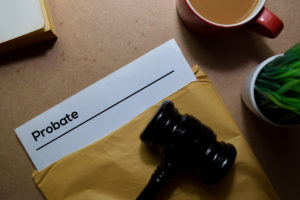‘Estate’ is a fancy word. It merely means every asset you own, including your home, bank accounts, all your personal property. Depending on the size of your estate and the type of assets you own, there are various estate planning documents you can utilize to pass your property to your loved ones, determine what happens in case you are in an accident or have an illness that renders you mentally or physically incapacitated. Here are a few things to consider as you get started with your estate plan.
DETERMINE WHO GETS WHAT
As you gather up an inventory of your assets, consider how you want them to be distributed to your loved ones. If you don’t have a will, the laws of your state will determine who inherits your property. On the other hand, a valid will or a trust will allow you to control the distribution of your property to whomever you choose.
It is important to note that your will cannot govern the beneficiary designations of your retirement accounts and life insurance policies. Such assets have their own governing documents that let you choose a beneficiary. Make sure to check with the financial institution that holds the asset to determine the rules that apply. It is also a good idea to double-check who you’ve named as your beneficiary. A common situation is a couple gets divorced and divide up their assets but they forget to update their IRA or life insurance policies. Years go by and each spouse gets remarried and they name their new spouses as beneficiaries in their trust or will. But if the ex-spouse was still listed as the beneficiary of the IRA or life insurance policy, that ex-spouse is legally entitled to the proceeds. Therefore, it’s a good rule of thumb to update the beneficiary designations in those accounts. You cannot change the beneficiary named in your IRA or life insurance policy in your trust or will. Only the governing documents for those accounts will allow you to change your beneficiary designations.
CHOOSE A PERSONAL REPRESENTATIVE
A personal representative is a person who will locate your estate planning documents, collect your assets, and distribute them to your beneficiaries. Choosing a personal representative is a crucial step. You want to pick a responsible and a trusted family member or a close friend. It is a good idea to discuss your estate plan with the person you have chosen as your representative and let him or her know of your wishes and the location of your estate planning documents. The last thing you want is your family rummaging through your home trying to find your will.
CHOOSE AN AGENT
In addition to choosing an executor, designate a trusted family member or a friend to act as your agent in case you are ever unable to make your own health care decisions or manage your finances. Your agent can be the same person as your executor.
CONSIDER INCLUDING A PERSONAL MESSAGE
Your estate planning documents do not have to be filled with dry legal jargon. This is your opportunity to leave a special message for your loved ones. In your will, you can let your family and friends know how you felt about them and how much you appreciated them. This is how to get started with your estate plan.







